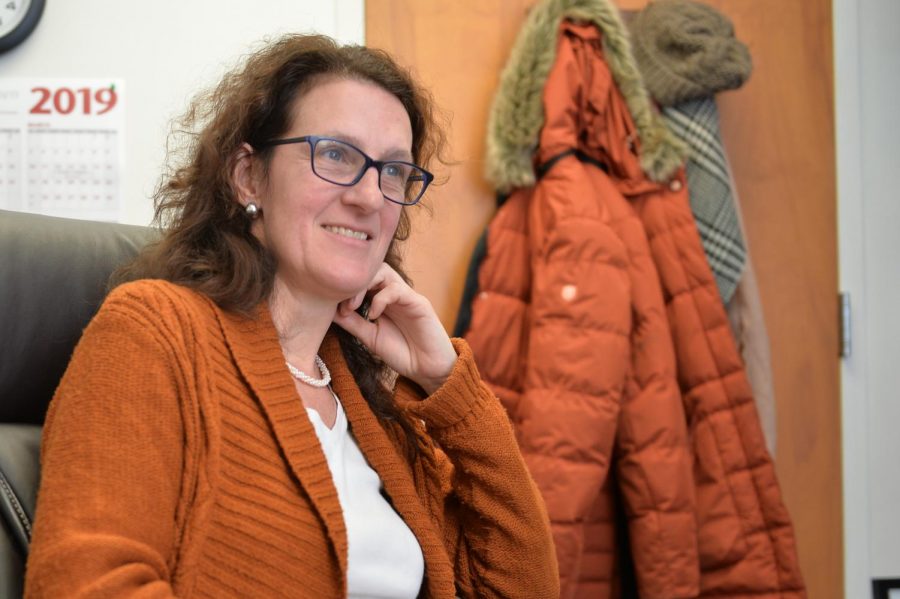WSU clinic offers therapy group
Kirchhoff said cognitive behavioral therapy is a very effective treatment approach
BENJAMIN MICHAELIS | THE DAILY EVERGREEN
Cornelia Kirchoff, assistant director of the psychology clinic, discusses the screening process for individuals wanting to participate in the new group therapy treatment on Monday in the Psychology Clinic in Johnson Tower.
February 27, 2019
The WSU Psychology Clinic will now offer transdiagnostic group therapy for treating those who have depression and anxiety.
Conny Kirchhoff, a clinical faculty member at the WSU Psychology Clinic, said she started a Transdiagnostic Cognitive Behavioral Therapy (T-CBT) group because the most common diagnosis she sees is either depression or anxiety.
“New research has shown there is a big overlap between [depression and anxiety],” Kirchhoff said. “Targeting these two diagnoses with one approach is the most ideal.”
Kirchhoff said she hopes T-CBT group sessions will start at the end of March. She is only accepting about 9 clients.
“Research has shown that’s the best size,” Kirchhoff said. “Everyone will still get enough one-on-one attention within the group without people feeling like they aren’t getting the most of the group.”
She said clients can get involved with the T-CBT group by calling WSU Psychology Clinic at (509) 335-3587. She said they would assess the client in the first meeting and discuss goals to determine if the group is the best fit for them.
Kirchhoff said there is a $10 fee for each session, which will pay for the clinic to host 12 total sessions.
“When we compare our clinic with other providers in the community, overall we’re pretty affordable,” she said.
Gregory Keiser, an assessment clinic assistant at the WSU Psychology Clinic, described cognitive-behavioral therapy as a relationship between thoughts, feelings and behaviors.
“The idea is that all of those things interact with each other,” Keiser said. “The way that we think can affect the way we feel and behave.”
He said cognitive behavioral therapy can be helpful because the clients and the therapist can analyze the client’s own thoughts, feelings and behaviors. Both the client and the therapist can also identify patterns and see where they can change those patterns.
Kirchhoff said cognitive behavioral therapy has proven to be a very effective treatment approach.
“We are already treating our individual clients with success,” she said. “Extending it to a group is just a next step to what we’re already doing in the clinic.”
Dakota Mauzay, a therapy clinic assistant at the WSU Psychology Clinic, said there many benefits come from taking part in group therapy.
“It’s the idea of the power within a group and creating a setting where you can address whatever is bringing you in,” Mauzay said. “Now instead of it just being one person, it’s a group of people who you can share your experiences and struggles with.”
Keiser said many people assume group therapy is scary.
“People come in and think they have to pour their hearts out to a group of strangers, but we try to create a space where people can choose to share what they are comfortable sharing,” he said.
Kirchhoff said her goal with the T-CBT group is to offer good-quality therapy for a broader population.
“I am hoping we can establish this on a continuous basis so that this can be an additional treatment approach for us,” Kirchhoff said. “I am hoping this can become a well-known thing in our community, so we can reduce people’s difficulties and be a resource for the community.”


















Sandy marshall • Feb 27, 2019 at 1:15 pm
So happy to see more mental health services!